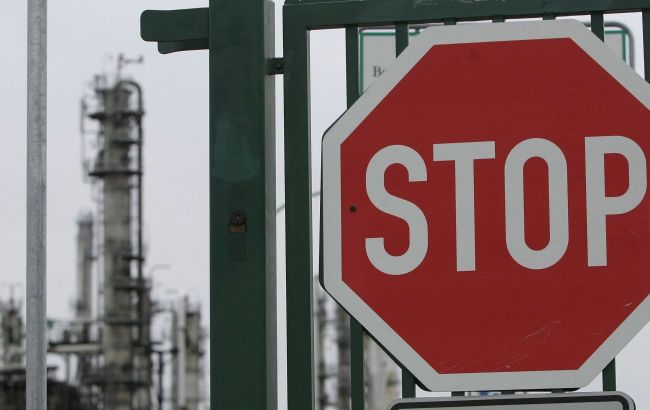All eyes on Trump's sanctions: Why Moscow not worried after EU oil limits
 Photo: Trump's sanctions could hit the Kremlin harder than the European Union's measures (Getty Images)
Photo: Trump's sanctions could hit the Kremlin harder than the European Union's measures (Getty Images)
The European Union has imposed a ban on the import of oil products from Russia and lowered the price cap to $47.60 per barrel. However, Russia continues to expand its sanction-evasion schemes and remains profitable, Reuters reports.
According to the media outlet, the new EU sanctions demonstrate a significant tightening of its stance, but they do not put an end to the oil war with Russia. A more dangerous scenario for Moscow would involve US secondary sanctions, though such a move carries risks for the global economy.
Russia's shadow schemes and the reactions of China and India continue to limit pressure on the Kremlin. Imports of fuel from Russia, bypassing restrictions, have increased to China and India, particularly diesel and aviation fuel. The EU intends to close this loophole with a full ban on oil products next year.
Despite the restrictions, Russia's oil export revenues in 2024 reached $192 billion, exceeding its military spending ($110 billion). For comparison, in 2019, oil export revenue amounted to $225 billion.
Exports continue to generate high income despite falling volumes, thanks to rising global prices.
Shadow fleet
Russia has built a network of shadow tankers, insurers, and payment schemes to circumvent sanctions, as a result of which the European Union has already imposed restrictions on 105 tankers and previously on 342. But Moscow will find ways to maintain supplies, through the shadow fleet and purchasing oil in the middle of the ocean.
China and India are likely to maintain their discounted purchases, and the fuel received will be redirected to new markets, which weakens the effect of the sanctions and allows Moscow to retain significant revenues, according to Reuters.
Trump's secondary tariffs
US President Donald Trump threatened secondary sanctions: 100% tariffs for importers of Russian oil, if he gets Moscow to stop the war against Ukraine within 50 days. This could impact Moscow more than European measures.
However, such a move threatens a sharp rise in global energy prices and accelerated inflation - a scenario that would also harm the US. That is likely why, despite the threats, the global market has so far reacted calmly, the Reuters article states.
EU sanctions
As previously reported, on July 18, EU member states agreed to introduce a new sanctions package against Russia.
The key element of the package, approved by EU ambassadors, is a new dynamic oil price cap mechanism, which will set the ceiling 15% below the average market price of Russian oil, meaning the price will now be reduced from $60 to approximately $47.60 per barrel.
The new package adds 105 new entries to the list of vessels in the so-called Russian shadow fleet, which Moscow has used to bypass the price cap. The number of banned vessels now exceeds 400.

